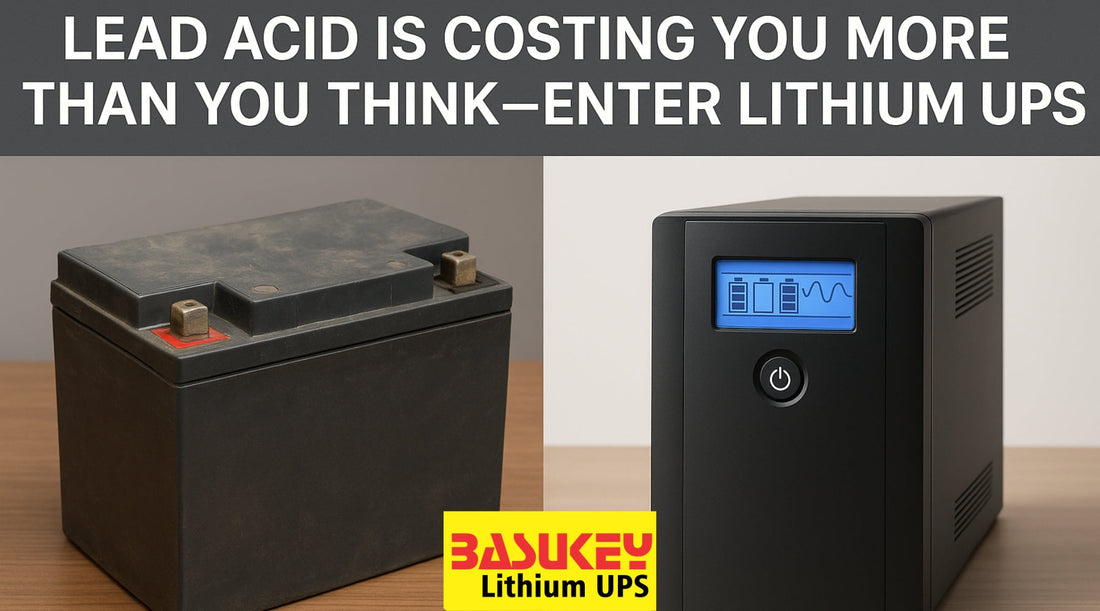
Lead Acid Is Costing You More Than You Think—Enter Lithium UPS
Share
Are you still relying on lead acid batteries for your uninterruptible power supply (UPS) needs? It's time to consider the long-term cost implications of sticking with lead acid. The solution? Enter lithium UPS.
Why Lead Acid is Costing You More
Lead acid batteries may seem like a cost-effective solution upfront, but the reality is that they come with hidden costs. These traditional batteries have a shorter lifespan compared to lithium batteries, leading to more frequent replacements. In fact, lead acid batteries typically need to be replaced 3-5 times more often than lithium batteries, resulting in higher maintenance costs over time.
The Cost-Effective Solution: Lithium UPS
Lithium UPS systems offer a longer lifespan, with some models lasting up to 10 years or more. This extended lifespan means fewer replacements and lower maintenance costs in the long run. Additionally, lithium batteries are more energy-efficient, providing better performance and reducing overall energy consumption.
Benefits of Lithium UPS
Switching to a lithium UPS system not only saves you money in the long term but also offers other benefits. Lithium batteries are lighter and more compact than lead acid batteries, saving valuable space in your facility. They also have a faster recharge rate, ensuring that your critical systems are up and running quickly in the event of a power outage.
Furthermore, lithium batteries are more environmentally friendly than lead acid batteries, as they are recyclable and have a lower impact on the environment. By making the switch to lithium UPS, you are not only saving costs but also reducing your carbon footprint.
Make the Switch Today
Don't let lead acid batteries drain your budget with frequent replacements and higher maintenance costs. Upgrade to a lithium UPS system for a cost-effective, reliable, and environmentally friendly power solution. Make the switch today and start saving in the long run.
